Did you know that over 80% of people struggle with acne at some point, often leaving stubborn marks behind? Acne scars and dark spots can dent confidence, but a simple kitchen ingredient—lemon juice—might be the natural solution you’ve been searching for. Packed with vitamin C and citric acid, lemon juice is celebrated for its skin-brightening and exfoliating properties. In this guide, you’ll learn how lemon juice can help fade acne marks, safe ways to use it, and tips to maximize results while protecting your skin. Backed by science and real-life experiences, this remedy is affordable and easy to try at home. Ready to reclaim clear, glowing skin? Let’s explore how lemon juice can transform your skincare routine!
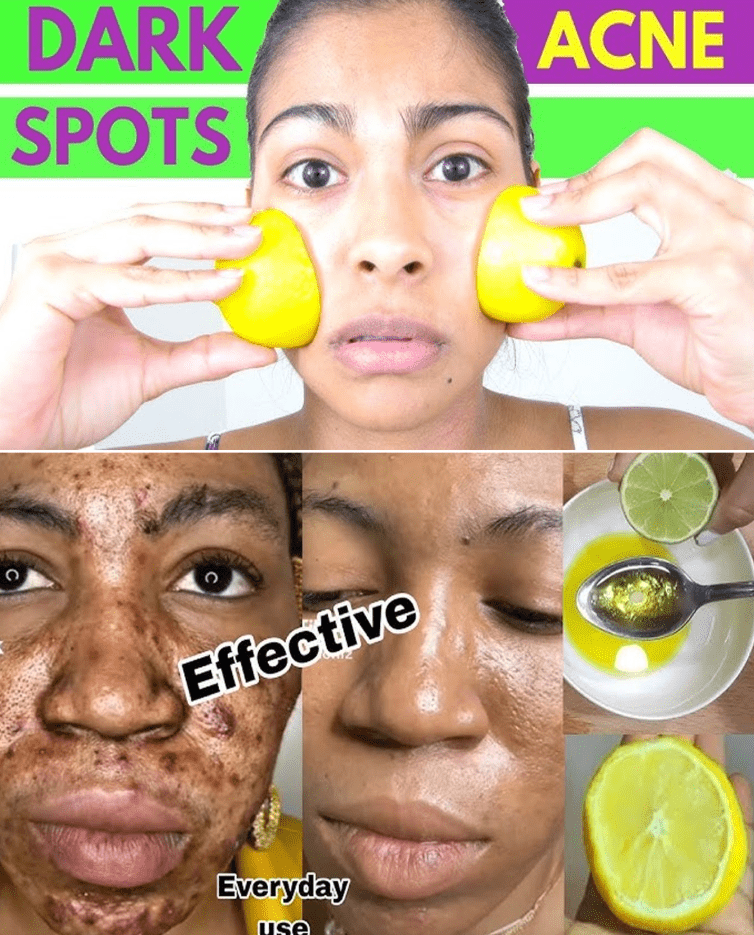
Why Lemon Juice Works for Acne Marks
Lemon juice is a powerhouse for skin health, thanks to its natural compounds. Understanding its properties helps explain why it’s a go-to remedy for acne marks.
Vitamin C: The Brightening Agent
Lemon juice is rich in vitamin C, an antioxidant that:
- Reduces hyperpigmentation by inhibiting melanin production.
- Promotes collagen synthesis, aiding scar healing.
- Protects skin from free radical damage.
A 2017 study in the Journal of Clinical and Aesthetic Dermatology found vitamin C effective in reducing post-acne hyperpigmentation.
Citric Acid: The Gentle Exfoliant
As an alpha-hydroxy acid (AHA), citric acid in lemon juice:
- Exfoliates dead skin cells, revealing brighter skin.
- Fades dark spots by accelerating cell turnover.
- Smooths skin texture, reducing the appearance of scars.
Research from 2020 in Molecules highlights citric acid’s role in chemical exfoliation, making it ideal for addressing acne marks.
Antibacterial Properties
Lemon juice’s natural acidity helps:
- Kill acne-causing bacteria like Propionibacterium acnes.
- Reduce excess oil, preventing new breakouts.
- Cleanse pores, minimizing inflammation.
These properties make lemon juice a versatile ally for clearer skin.
Types of Acne Marks Lemon Juice Can Help
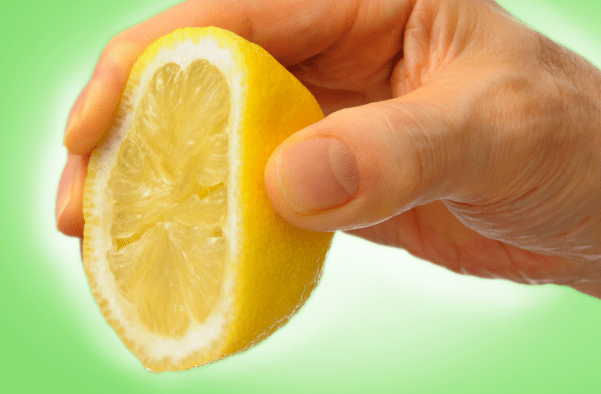
Not all acne marks are the same. Lemon juice is most effective for certain types, so let’s break them down.
Post-Inflammatory Hyperpigmentation (PIH)
PIH appears as flat, dark spots after acne heals. Lemon juice’s vitamin C and citric acid lighten these marks by reducing melanin buildup. A 2019 study in Dermatology Research and Practice noted vitamin C’s efficacy in fading PIH.
Post-Inflammatory Erythema (PIE)
PIE causes red or pink marks from inflamed acne. Lemon juice’s anti-inflammatory properties may reduce redness over time, though results are slower compared to PIH.
Shallow Acne Scars
Lemon juice can improve the texture of shallow, atrophic scars by promoting cell turnover. However, it’s less effective for deep, pitted scars, which may require professional treatments.
Not Suitable for Keloid Scars
Raised, keloid scars won’t respond well to lemon juice and may need dermatological intervention.
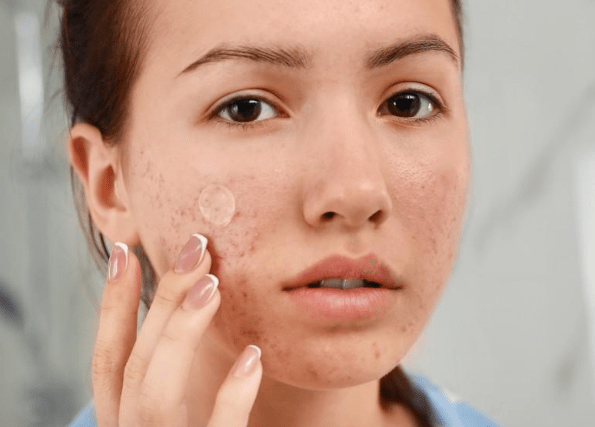
How to Use Lemon Juice for Acne Marks
Using lemon juice safely is key to avoiding irritation. Here’s a simple method to incorporate it into your skincare routine.
Basic Lemon Juice Application
| Ingredient | Quantity | Notes |
|---|---|---|
| Fresh lemon | 1 (juice) | Use organic lemons to avoid pesticides |
| Cotton pad | 1–2 | For easy application |
| Water (optional) | 1–2 tbsp | For dilution, sensitive skin |
| Moisturizer | As needed | Non-comedogenic, hydrating |
Steps
- Extract Juice: Squeeze the juice from one fresh lemon into a clean bowl.
- Dilute (Optional): Mix with 1–2 tablespoons of water if you have sensitive skin to reduce acidity.
- Cleanse Skin: Wash your face with a gentle cleanser and pat dry.
- Apply: Dip a cotton pad in the lemon juice and gently apply to acne marks, avoiding eyes and open wounds.
- Wait: Leave on for 5–10 minutes (start with 5 for sensitive skin).
- Rinse: Wash off with lukewarm water to prevent irritation.
- Moisturize: Apply a hydrating, non-comedogenic moisturizer to lock in moisture.
- Sunscreen: Use broad-spectrum SPF 30+ during the day, as lemon juice increases photosensitivity.
Frequency
- Use 2–3 times per week for 4–6 weeks to see results.
- Start with once weekly if you’re new to lemon juice to test tolerance.
Alternative: Lemon Juice Mask
For a gentler approach, combine lemon juice with soothing ingredients:
- Ingredients: 1 tbsp lemon juice, 1 tbsp honey, 1 tsp yogurt.
- Method: Mix, apply to acne marks, leave for 10–15 minutes, rinse, and moisturize.
- Benefits: Honey and yogurt hydrate and reduce irritation while enhancing lemon’s brightening effects.
Benefits of Using Lemon Juice for Acne Marks
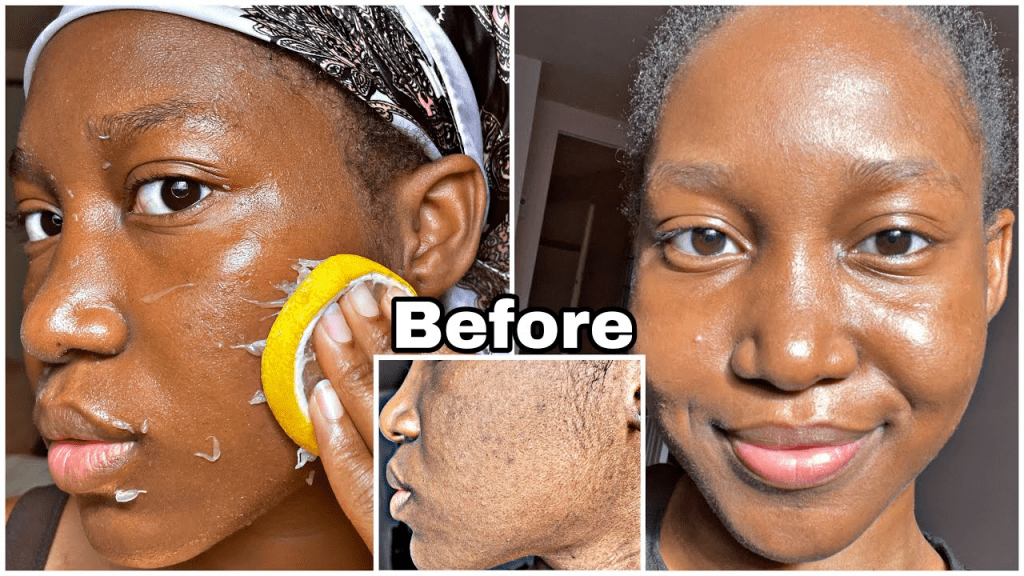
With consistent use, lemon juice offers multiple benefits for skin affected by acne marks.
Fades Dark Spots
Vitamin C and citric acid lighten hyperpigmentation, making dark spots less noticeable. Users often see improvement within 3–4 weeks.
Smooths Skin Texture
Citric acid’s exfoliating action removes dead skin, reducing roughness and improving scar appearance. A 2021 study in Skin Pharmacology and Physiology confirmed AHAs enhance skin smoothness.
Prevents New Breakouts
Lemon juice’s antibacterial properties reduce acne-causing bacteria, helping prevent new pimples that could lead to more marks.
Affordable and Accessible
Unlike expensive serums, lemon juice is budget-friendly and widely available, making it an easy addition to any routine.
Boosts Skin Radiance
Regular use promotes a brighter, more even complexion, enhancing overall skin glow.
Real-Life Success Story
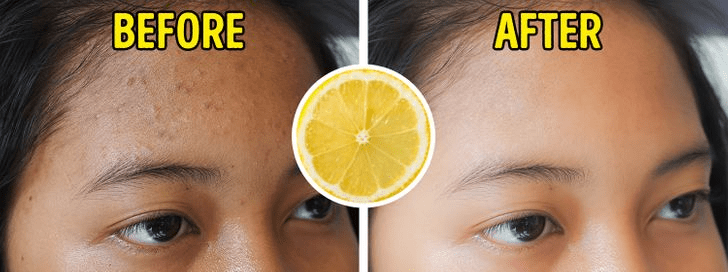
Sarah, a 27-year-old graphic designer, battled acne marks from teenage breakouts. Frustrated with costly treatments, she tried lemon juice after reading about its brightening effects. Using the diluted application method three times weekly, she noticed her dark spots fading after a month. “My skin looks clearer, and I feel more confident,” she shared. Sarah paired the remedy with sunscreen and a healthy diet, aligning with research from 2020 in Nutrients showing vitamin C’s role in skin repair. Her story highlights how consistent, safe use can yield visible results.
Tips to Enhance Results
To maximize lemon juice’s effectiveness and protect your skin, follow these practical tips:
- Use Fresh Lemons: Fresh juice contains more active compounds than bottled versions.
- Apply at Night: Lemon juice increases sun sensitivity, so nighttime use reduces risk of UV damage.
- Pair with a Balanced Diet: Eat foods rich in antioxidants (berries, spinach) and zinc (nuts, seeds) to support skin healing.
- Stay Hydrated: Drink 8–10 glasses of water daily to promote cell turnover and flush toxins.
- Avoid Harsh Products: Skip abrasive scrubs or retinoids on lemon juice days to prevent irritation.
- Be Patient: Fading acne marks takes 4–8 weeks, so consistency is key.
Precautions and Safety Considerations
Lemon juice is potent and requires careful use to avoid side effects. Keep these precautions in mind:
- Patch Test: Apply a small amount to your inner arm and wait 24 hours to check for irritation.
- Dilute for Sensitive Skin: Undiluted lemon juice can cause redness or burning in sensitive types.
- Avoid Sun Exposure: Lemon juice is photosensitizing, increasing sunburn risk. Always use sunscreen during the day.
- Don’t Overuse: Excessive application (daily or prolonged contact) may dry out or irritate skin.
- Consult a Dermatologist: If you have severe acne scars, active acne, or conditions like eczema, seek professional advice.
Who Should Avoid Lemon Juice?
| Condition/Group | Reason |
|---|---|
| Sensitive Skin | Risk of irritation or redness |
| Open Wounds/Active Acne | May sting or worsen inflammation |
| Dark Skin Tones | Higher risk of irritation or uneven tone |
Why Choose Lemon Juice Over Commercial Products?

Lemon juice offers a natural, cost-effective alternative to store-bought treatments. Unlike many serums with synthetic additives, it’s:
- Affordable: A single lemon costs pennies compared to $50+ serums.
- Natural: Free from parabens, sulfates, or artificial fragrances.
- Customizable: Adjust dilution or combine with soothing ingredients like honey.
- Sustainable: Reduces reliance on plastic-packaged products.
By choosing lemon juice, you’re embracing a time-tested remedy that’s gentle on both your skin and the environment.
FAQs About Lemon Juice for Acne Marks
How long does it take to see results? Most notice fading dark spots within 4–6 weeks of 2–3 weekly applications. Consistency is key. Can I leave lemon juice on overnight? No, this can cause irritation. Limit to 5–10 minutes and rinse thoroughly. Is lemon juice safe for all skin types? It’s best for normal to oily skin. Sensitive or dry skin should use diluted juice and patch test first. Can lemon juice remove deep acne scars? It may improve shallow scars but isn’t effective for deep, pitted scars. Consult a dermatologist for those.
Conclusion
Lemon juice is a simple, natural remedy to fade acne marks and boost skin radiance. With its vitamin C, citric acid, and antibacterial properties, it tackles dark spots, smooths texture, and prevents breakouts. Use it safely with dilution, sunscreen, and consistency for best results. Always consult a dermatologist for severe acne or scars. Note: This content is for informational purposes only and does not replace professional medical advice. Ready to try this budget-friendly solution? Visit our website for more skincare tips!




